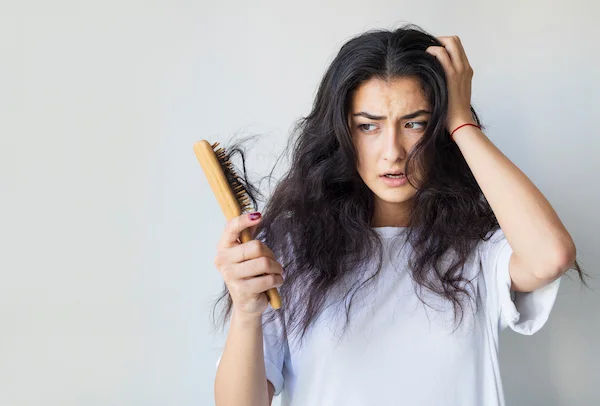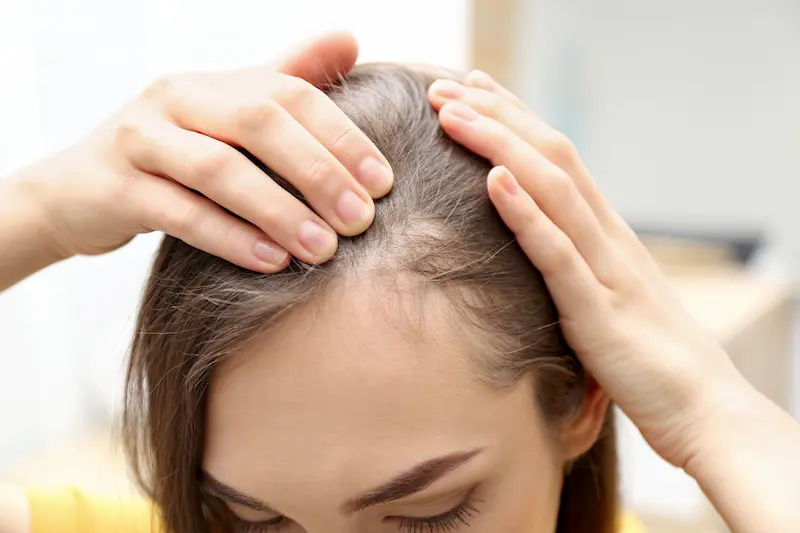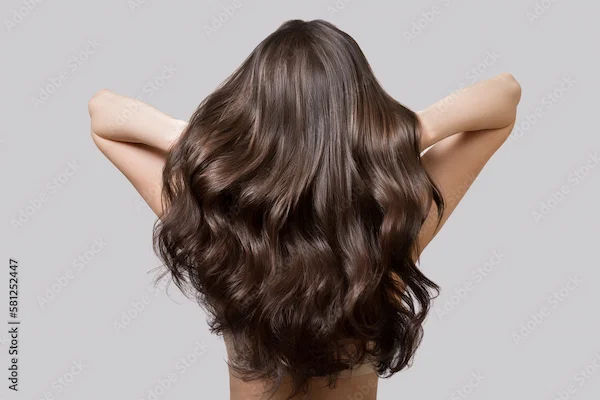How Onion Juice Can Improve Hair Growth Naturally
Curious about onion juice for hair? Learn what science shows, how to use this natural hair growth remedy safely, side effects, and when to see a dermatologist.

Written by Dr. Mohammed Kamran
Reviewed by Dr. Rohinipriyanka Pondugula MBBS
Last updated on 13th Jan, 2026

Introduction: Why People Are Talking About Onion Juice
Hair thinning and shedding are widespread concerns, affecting people of all ages. Modern treatments exist, but many individuals still explore natural or kitchen-based solutions. Among these remedies, onion juice has gained significant online attention. Videos and testimonials often claim dramatic regrowth, improved thickness, or a healthier scalp. However, popularity alone does not confirm effectiveness.
This guide explores what onion juice may—and may not—do, based on existing evidence. You will also learn how to use onion juice safely, how to prepare it at home, how to store it correctly, and when it’s best to seek medical advice. The aim is to provide a balanced, realistic overview grounded in available science rather than hype.Consult a Top General Practitioner for Personalised Advice
Does Onion Juice for Hair Work? What the Science Shows
What We Know
A small, earlier clinical study investigated the effects of onion juice on hair regrowth in individuals with patchy alopecia areata. In the study:
• Participants applied onion juice to the affected scalp areas twice daily.
• Many people in the onion juice group experienced visible regrowth within weeks.
• Those in the control group—who used plain water—saw far fewer results.This research suggests onion juice may have potential benefits for some people with alopecia areata, an autoimmune condition that creates patchy bald spots.
Important Limits
Despite the promising study, several limitations exist:
• The research was small and short-term.
• It focused solely on alopecia areata, not other types of hair loss.
• It did not test onion juice for androgenetic alopecia (male- or female-pattern hair loss), which is the most common cause of thinning.
• It did not evaluate onion juice for telogen effluvium, the type of shedding triggered by stress, illness, or hormonal changes.
Current evidence is too limited to confirm whether onion juice works for most people.
Why It Might Help?
Onions contain compounds that may theoretically support hair and scalp health:
• Sulphur, a structural component of keratin, the main protein in hair.
• Antioxidants, such as quercetin, help reduce oxidative stress.
• Antimicrobial properties, which may help maintain scalp hygiene.
These features suggest possible benefits, but they do not prove that onion juice reliably stimulates hair growth for everyone.
Bottom Line on Effectiveness
• Early evidence supports use in patchy alopecia areata.
• There is no strong evidence for pattern hair loss or general shedding.
• More modern, larger-scale research is needed before onion juice can be considered a proven treatment.
Using onion juice can be an experiment for some people, but expectations should remain realistic.
Who Might Benefit Most?
It benefits most in:
Possibly Helpful For
• Adults with small, patchy alopecia areata.
• People with generally healthy skin who do not experience irritation from topical applications.
Not Proven For
• Male-pattern hair loss
• Female-pattern hair thinning
• Postpartum shedding
• Stress-related shedding
• Scarring hair loss (which requires medical treatment)
Seek Professional Care
In the situations below:
• You experience sudden, severe, or unexplained shedding.
• Bald spots appear rapidly.
• You notice scalp redness, pain, scaling, or scarring.
• Hair loss occurs along with fatigue, weight changes, or systemic symptoms.
How to Use Onion Juice Safely as a Hair Growth Remedy
The ways to use onion juice safely for hair growth include:
Simple DIY Approach
1) Choose and Prep
• Use fresh red or yellow onions.
• Clean your tools thoroughly to avoid contamination.
• Start with a clean scalp free of heavy oils or styling products.
2) Make the Juice
• Chop 1–2 onions and blend or grate them into a pulp.
• Strain through a clean sieve or cheesecloth.
• Optional: dilute the juice 1:1 with clean water or aloe vera juice to reduce irritation.
• Avoid adding essential oils—they can increase sensitivity.
3) Patch Test First
• Apply a small amount of diluted onion juice to the inner forearm or behind the ear.
• Leave it for 24–48 hours.
• Avoid scalp use if you develop redness, itching, burning, or a rash.
4) Apply to the Scalp
• Use fingertips or cotton pads to apply the liquid directly to the scalp.
• Avoid the eyes and do not apply to broken or inflamed skin.
• Massage gently for 1–2 minutes.
5) Leave On and Rinse
• Leave the mixture on for 15–60 minutes, depending on comfort.
• Rinse thoroughly with lukewarm water and mild shampoo.
6) Frequency and Duration
• Begin with 2–3 applications per week.
• Increase gradually if no irritation develops.
• Look for changes over 6–8 weeks.
• If no improvement appears after 2–3 months, stop use and consult a dermatologist.
Storage and Hygiene Tips
The storage and hygiene tips include:
• Make only small batches to prevent spoilage.
• Refrigerate leftovers in a clean, sealed container for 24–48 hours maximum.
• Discard any juice with an unusual smell, colour change, or cloudiness.
• Wash cloths, applicators, and tools after every use.
Safety First: Patch Testing and Irritation Prevention
The safety procedures include:
• Patch test every new batch.
• Avoid applying onion juice after chemical treatments or microneedling.
• People with eczema, rosacea, seborrhoeic dermatitis, or sensitive skin should consult a clinician before applying.
• Stop immediately if you experience stinging, hives, or significant itching.
What We Know—and Don’t—About Benefits
The known and unknown benefits include:
Potential Benefits
• May support regrowth in patchy alopecia areata.
• Contains antioxidants and sulphur, which may help maintain a healthy scalp.
• Demonstrates antimicrobial activity in some lab studies.
Uncertainties
• No confirmed effectiveness for androgenetic alopecia.
• Ideal concentration and application frequency remain unknown.
• It’s unclear whether onion juice, onion pulp, or commercial onion-based products differ in effectiveness.
• Most studies used fresh onion juice, not onion-infused oils.
Risks, Side Effects, and Who Should Avoid It
The risks, side effects and scenarios to avoid include:
Common Side Effects
Side effects include:
• Scalp redness
• Stinging or burning
• Dryness or itchiness
• Contact dermatitis
• Strong, lingering odour
Who Should Avoid or Use with Caution
Use it with caution if:
• Anyone with an onion or allium allergy
• People with inflamed or highly sensitive scalps
• Pregnant or breastfeeding individuals are unsure about topical use
• Those already using other topical irritants
Onion Juice vs Onion Oil: What’s the Difference?
Let us see the differences below:
Onion Juice
• Derived directly from fresh onions.
• Contains water-soluble compounds evaluated in early research.
Onion Oil
• Usually, an infused oil or fragrance product.
• Does not always contain the same active compounds.
• Evidence for hair growth effects is limited.
If you choose a commercial product, check for full ingredient lists and avoid heavy fragrances if you have sensitive skin.
Evidence-Based Alternatives (Often More Reliable)
Scientific, proven options for hair loss, especially pattern thinning, include:
• Topical minoxidil (foam or solution)
• Prescription treatments, including oral finasteride for men
• Low-dose oral minoxidil, used off-label under medical supervision
• Addressing underlying issues, such as iron deficiency or thyroid imbalance
• Gentle hair care, reducing heat and tight styles
• Dermatology treatments, including PRP, corticosteroid injections, or laser therapy in selected cases
When to See a Dermatologist?
You should seek professional evaluation if you notice:
• Sudden or patchy bald spots
• Pain, scaling, scabbing, or signs of infection
• Weak, thinning hair with no clear cause
• No improvement after several months of home care
• Hair loss accompanied by systemic symptoms
Step-by-Step: DIY Onion Juice for Hair Growth Remedy
DIY procedure includes:
Ingredients
• 1–2 fresh onions
• Clean water or aloe vera for dilution
• Mild shampoo
Tools
• Blender or grater
• Sieve or cheesecloth
• Clean bowl
• Sterile jar
• Cotton pads or applicator bottle
Directions
1. Chop and blend onions into a fine pulp.
2. Strain through cheesecloth to extract the juice.
3. Dilute with water or aloe if desired.
4. Perform a patch test for 24–48 hours.
5. Apply the juice to the scalp.
6. Leave on for 15–60 minutes.
7. Rinse with mild shampoo.
8. Use 2–3 times weekly and track progress.
Pro Tips to Reduce Odour
The tips to reduce the odour are:
• Shampoo thoroughly after each use.
• Condition the mid-lengths and ends.
• Rinse with diluted apple cider vinegar (patch test first).
• Air out your bathroom or use a shower cap to contain scent.
Conclusion
Onion juice is an interesting natural option with early evidence supporting use for small, patchy alopecia areata. While it may support scalp health for some individuals, it remains unproven for common pattern hair loss or general shedding. Safe use requires proper patch testing, hygiene, and realistic expectations. If you are concerned about constant thinning, worsening symptoms, or sudden bald spots, a dermatologist can provide a personalised, effective treatment plan. Onion juice may be part of a broader routine, but it should not replace evidence-based medical care when needed.Consult a Top General Practitioner for Personalised Advice
Consult a Top General Practitioner for Personalised Advice

Dr. Mainak Baksi
General Practitioner
13 Years • MBBS , MD (MPH)
Howrah
Mainak Baksi Clinic, Howrah
(50+ Patients)

Dr. Rajib Ghose
General Physician/ Internal Medicine Specialist
25 Years • MBBS
East Midnapore
VIVEKANANDA SEBA SADAN, East Midnapore

Dr. Ashita Kuruvilla
General Practitioner
7 Years • MBBS
Kolkata
KVC CLINIC, Kolkata

Dr. Ishita Mandal
General Surgeon
7 Years • MBBS(hons.), MS(general surgery), General and laparoscopic surgeon
Kolkata
VDC Clinic, Kolkata

Dr. Arif Ahmed
General Physician/ Internal Medicine Specialist
9 Years • MBBS, MD (Genl. Med.)
Kolkata
MCR SUPER SPECIALITY POLY CLINIC & PATHOLOGY, Kolkata
Consult a Top General Practitioner for Personalised Advice

Dr. Mainak Baksi
General Practitioner
13 Years • MBBS , MD (MPH)
Howrah
Mainak Baksi Clinic, Howrah
(50+ Patients)

Dr. Rajib Ghose
General Physician/ Internal Medicine Specialist
25 Years • MBBS
East Midnapore
VIVEKANANDA SEBA SADAN, East Midnapore

Dr. Ashita Kuruvilla
General Practitioner
7 Years • MBBS
Kolkata
KVC CLINIC, Kolkata

Dr. Ishita Mandal
General Surgeon
7 Years • MBBS(hons.), MS(general surgery), General and laparoscopic surgeon
Kolkata
VDC Clinic, Kolkata

Dr. Arif Ahmed
General Physician/ Internal Medicine Specialist
9 Years • MBBS, MD (Genl. Med.)
Kolkata
MCR SUPER SPECIALITY POLY CLINIC & PATHOLOGY, Kolkata
More articles from Hair Problems
Frequently Asked Questions
1) Can onion juice regrow hair if I have male- or female-pattern baldness?
There is no strong evidence supporting onion juice for pattern hair loss. Treatments such as minoxidil and finasteride have significantly stronger research backing.
2) How long does it take to see results?
Some people with alopecia areata saw changes within 6–8 weeks in the small study. If you see no change after 2–3 months, consider stopping.
3) How often should I use it?
Start with 2–3 times weekly and increase only if your skin tolerates it well.
4) Is onion oil the same as onion juice?
No. Onion oils vary widely and often contain fragrance. Only fresh juice has been tested in studies.
5) Can I mix onion juice with castor oil or other ingredients?
There is no evidence that mixtures increase effectiveness, and they may raise the risk of irritation.




